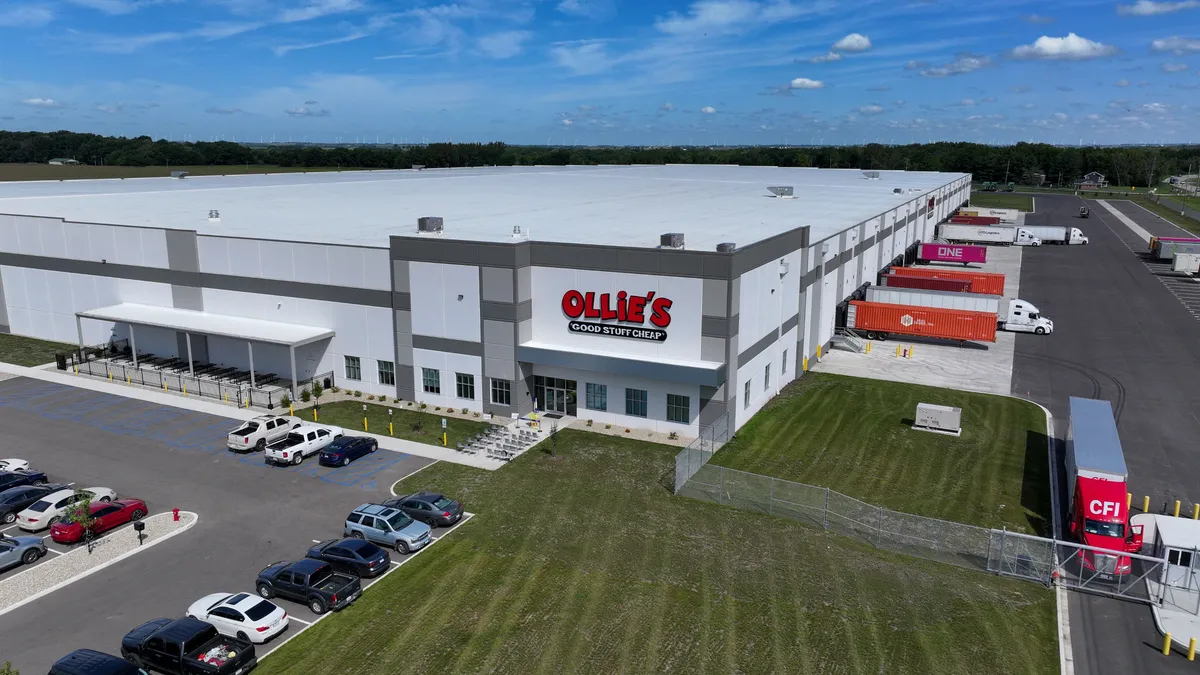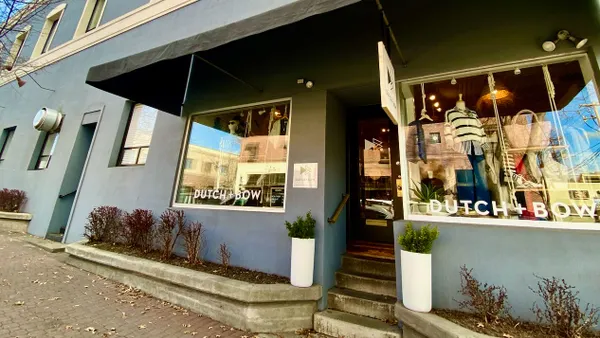Dive Brief:
- Ollie’s Bargain Outlet opened a new distribution center in Princeton, Illinois, in a bid to grow its Midwest distribution capacity, Brian McNabb, SVP of supply chain at Ollie's, told Supply Chain Dive in an interview.
- The 615,000-square-foot facility will help streamline operations while serving 60 stores in nine states and eventually increase to over 150 stores, according to a press release last month.
- The new Illinois facility will feature “robotics and automation that helps us process pallet picks more efficiently, as well as cases that are too small to convey and then high velocity case pick SKUs,” he added.
Dive Insight:
Technology is a critical piece of Ollie’s efforts to streamline its operation and grow its distribution footprint.
The Illinois facility is the discount retailer’s fourth distribution center, with others located in York, Pennsylvania; Commerce, Georgia; and Lancaster, Texas, McNabb said. Ollie’s existing facilities are equipped with “normal” high speed conveyance and sortation systems, McNabb said.
Ollie’s warehouse operators collaborated on how to design the new Illinois center, including the types of automation the building should be equipped with and whether those elements could be added to its existing distribution network. McNabb noted that Ollie’s will continue to test its efforts.
“It's about us learning our business and learning and trying new things to try and drive efficiency in the supply chain world,” McNabb said. “We are constantly looking for new ways to build upon efficiency, drive effectiveness and our operation.”
Implementing warehouse automation has increasingly grown as companies look to improve operations. Logistics providers, for instance, have leveraged warehouse tech during times of high e-commerce volumes and labor challenges to help bridge those gaps. Retailers have also followed in similar footsteps in order to better fulfill and distribute goods.
GXO Logistics and DHL Supply Chain have been focused on strategic warehouse partnerships to stay competitive and increase resilience in its supply chain. Others like General Mills and Dollar General have added automation to their warehouse operations to efficiently process SKUs.















